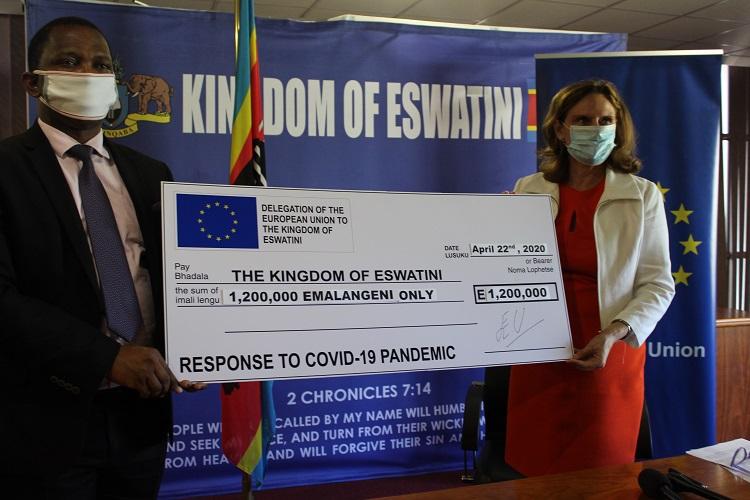EU provides 58 000 Euros to help counter effects of COVID-19 in Eswatini

The contribution was made to the government of Eswatini by EU Ambassador, Esmeralda Hernandez Aragones, during an event held at the Prime Minister's office in Mbabane on 22 April 2020. This assistance was received by the Minister of Agriculture, Jabulani Mabuza.
Making the presentation, Ambassador Hernandez Aragones said the EU contribution was aimed at helping to increase agricultural production in Eswatini over the next six months thereby countering the effects of the COVID-19 pandemic.
She said the EU contribution will focus on ensuring that 400 ha of land is kept under use for the production of about 2 500 metric tonnes of vegetable produce over the targeted period.
The Ambassador said the outbreak of the COVID-19 pandemic calls for strong international cooperation in order to fight and bring the pandemic under control. She said the virus was threatening the health and livelihoods of all people around the globe including Eswatini, adding that for economies such as those of Eswatini which are largely dependent on agriculture, the effects of the pandemic risk developing into a food security crisis, particularly for the poor and needy, hence the EU intervention.
"We must safeguard the uninterrupted flow of agricultural production and trade in order to ensure food security for all, thus mitigating the impact of the coronavirus," said the Ambassador.
Receiving the contribution, the Minister of Agriculture, Jabulani Mabuza, appreciated the EU gesture and stated that the contribution will help improve production of the targeted vegetables, increase food availability and affordability as well as increase household income from the sale of vegetables thereby improving farmer liquidity and working capital.
The Minister said his ministry has identified seven critical vegetable lines to respond to the coronavirus pandemic, both in the short and medium terms as part of the broader food security response.
"These interventions will directly address the already evident shortage of the seven critical commodities in the local market. These shortages have been made worse by the global restrictions in the movement of goods and people as a result of the COVID-19 pandemic," said the Minister.
